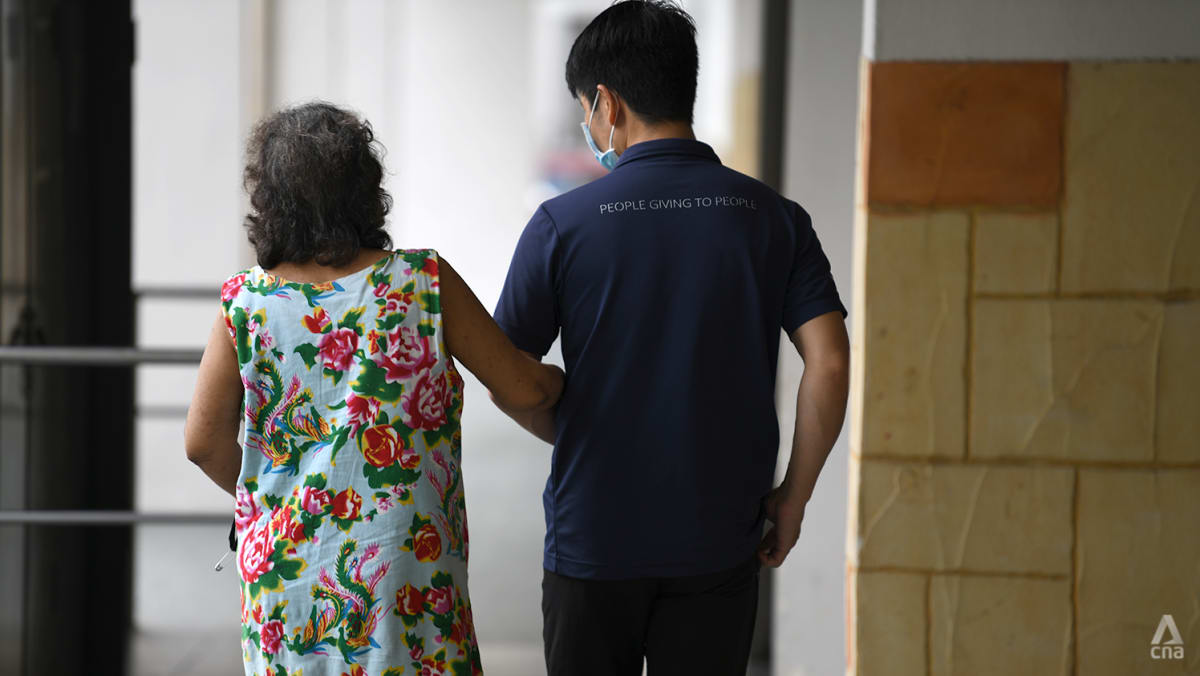
SINGAPORE: The way elderly people with multiple medical conditions are treated and the benefits of having them stay employed were among topics discussed at a symposium held by the Centre for Research on Successful Ageing (ROSA) on Tuesday (Nov 1).
One issue highlighted was that of elderly people with multiple illnesses seeing separate specialists for each condition, taking several different types of medicines and with no one to coordinate their “basket of medication”.
Such a situation could be what is known as “polypharmacy”, which refers to the concurrent use of multiple medicines either dispensed according to a prescription or bought over-the-counter.
“There’s hope that when you have a family physician, somehow that coordination would happen, but … it doesn’t necessarily happen automatically,” said Professor Paulin Straughan, director and principal investigator at ROSA.
The worry is that patients are being treated for individual illnesses when they see different doctors, as opposed to a holistic approach, she CNA938’s Asia First a day after the symposium, which had a theme of advancing healthy aging and nurturing the health capital of older adults.
“This is something that I think we need to work very hard on,” she said.
Prof Straughan, who is from the sociology department at the Singapore Management University where ROSA was set up in 2014, also elaborated on a point made by a guest at the event – regarding treating patients who are well, versus those who are ill.
The Professor spoke about going for regular check-ups with a family doctor instead of waiting until something goes wrong – an approach which also forms a key prong of Singapore’s Healthier SG strategy.
The relationship between patient and doctor will have more balance this way, she said.
“If you are a doctor treating a (sick) patient, the power imbalance is phenomenal. The doctor is the authority because you’re sick,” she said.
Prof Straughan said older Singaporeans living with disabilities are “losing” about 10 years.
“We need to claim that 10 years back so that we can fully leverage our extended life expectancy. There was consensus across the room that it is more than a medical science problem,” she said.
She added that other than physical well-being, mental, social and economic well-being are equally important as people grow older.
Also speaking to the radio station was Ms Janice Chia, founder and managing director of Ageing Asia, who said that when she went to Japan recently, she noticed doctors went beyond treating illnesses.
Doctors in Japan would spend about 45 minutes to an hour talking to older people to understand how they are doing, especially in aspects of mental health and wellness, she said.
EMPLOYMENT FOR OLDER WORKERS
Addressing a suggestion from Japanese economist Professor Takashi Oshio that older people should work for longer because it will benefit them, Prof Straughan said that with longer lifespans, there is a bigger proportion of the population who are in good health but unengaged due to the “static” retirement age in Singapore.
“Once past retirement, we see that we have about 20 to 25 good years, and what do we do with the 20 to 25 good years? So Takashi’s argument is ‘let’s continue to make it easier for older adults to continue to contribute to the economy’, so that’s a big plus,” she said.
In the same vein, Ms Chia said that employers have to be creative about the type of work for older workers.
Not everyone likes a structured work approach, she said, adding that society is changing and with that, work hours and types of work are also evolving.
“We have to think about more, perhaps, micro entrepreneurship opportunities. Perhaps older people would like to find their own job opportunities and create more ventures,” she said.
Asking companies to look at the type of job opportunities available for older workers, and breaking work into smaller components or having project-based work would help, she said.
